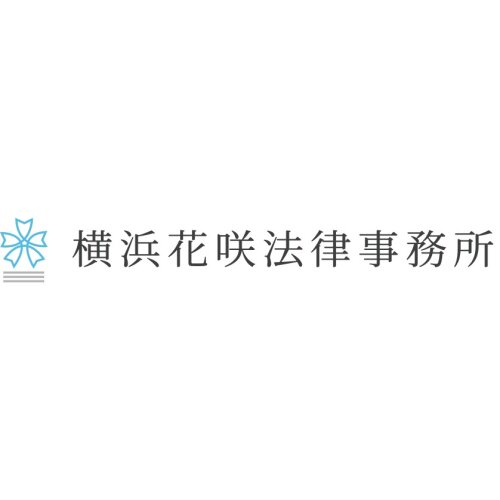Best Due Diligence Lawyers in Yokohama
Share your needs with us, get contacted by law firms.
Free. Takes 2 min.
List of the best lawyers in Yokohama, Japan
About Due Diligence Law in Yokohama, Japan
Due Diligence in Yokohama, Japan, is a crucial legal and business process involving a comprehensive appraisal of a business or an individual before entering into a contract or agreement. This process aims to identify potential risks, verify information, and ensure compliance with local and international standards. Given Yokohama’s significant role in commerce and as a hub for international business, due diligence is essential for facilitating successful partnerships, mergers, and acquisitions within the city. Practicing due diligence helps businesses and individuals make informed decisions by thoroughly assessing the legal, financial, and commercial aspects of a potential transaction or relationship.
Why You May Need a Lawyer
Engaging a lawyer for due diligence can be beneficial in numerous scenarios. Some common situations include:
Business Acquisitions: Lawyers can conduct financial and operational assessments before purchasing a company.
Joint Ventures: Legal experts ensure compliance and safeguard interests when forming business partnerships.
Property Transactions: Conducting property due diligence mitigates legal risks associated with real estate investment.
Investment Evaluation: Lawyers assess the legitimacy and regulatory compliance of investment opportunities.
Regulatory Compliance: Companies require legal assistance to adhere to local legislation and international law standards.
Local Laws Overview
Due diligence in Yokohama is shaped by various legal frameworks that parties must adhere to during the evaluation process, such as:
Japanese Commercial Code: This outlines the general obligations and standards for businesses operating within Japan.
Securities and Exchange Law: It regulates transactions involving securities, ensuring transparency and protecting investor interests.
Anti-Monopoly Act: This law prevents monopolistic practices and facilitates fair competition, relevant for market assessment in due diligence.
Real Estate Transaction Regulations: Guidance on property transactions to ensure legal compliance and secure transactions.
Additionally, international agreements and treaties may influence the due diligence process in Yokohama, especially with foreign entities involved.
Frequently Asked Questions
What is the purpose of due diligence in Yokohama?
Due diligence aims to verify the legal, financial, and operational aspects of a transaction or business relationship to ensure compliance and minimize risks.
When should I start due diligence?
It is advisable to begin due diligence before entering a legally binding agreement to provide ample time for comprehensive evaluations.
How long does the due diligence process take?
The duration varies based on the complexity and scope of the investigation. It can range from a few weeks to several months.
Do I need a lawyer for every due diligence process?
While not always mandatory, having a lawyer ensures thorough examination and professional handling of legal complexities.
What are common challenges in due diligence?
Challenges include handling vast amounts of data, dealing with incomplete information, and navigating legal compliance across jurisdictions.
Can due diligence uncover all risks?
While due diligence is comprehensive, it may not reveal every potential risk but significantly reduces uncertainties.
What should be included in a due diligence checklist?
A typical checklist includes legal documents, financial statements, compliance records, and operational data.
Is due diligence different for foreign companies?
Yes, foreign companies might face additional legal and regulatory requirements in Japan, necessitating more extensive due diligence.
How does due diligence impact negotiations?
Findings from due diligence can affect terms and conditions, influencing bargaining power during negotiations.
Who conducts due diligence?
Due diligence can be conducted by internal teams, independent consultants, or legal professionals experienced in the field.
Additional Resources
For those seeking further information, these resources may prove useful:
Yokohama Chamber of Commerce and Industry: Provides guidance and support for local businesses.
Japan External Trade Organization (JETRO): Offers insights into conducting business in Japan.
Japan Fair Trade Commission: Ensures compliance with anti-monopoly laws relevant to due diligence.
Real Estate Transaction Modernization Promotion Organization: Assists with understanding real estate regulations.
Next Steps
If you require legal assistance with due diligence, consider taking the following steps:
Research Qualified Professionals: Evaluate potential legal experts or firms with experience in due diligence.
Schedule Consultations: Meet with lawyers to discuss your specific needs and understand their approach to due diligence.
Engage a Lawyer: Once you’ve determined the right legal counsel, formally engage them to assist with your due diligence requirements.
These steps can facilitate a smooth due diligence process, helping to uncover critical insights and potentially save you from future complications.
Lawzana helps you find the best lawyers and law firms in Yokohama through a curated and pre-screened list of qualified legal professionals. Our platform offers rankings and detailed profiles of attorneys and law firms, allowing you to compare based on practice areas, including Due Diligence, experience, and client feedback.
Each profile includes a description of the firm's areas of practice, client reviews, team members and partners, year of establishment, spoken languages, office locations, contact information, social media presence, and any published articles or resources. Most firms on our platform speak English and are experienced in both local and international legal matters.
Get a quote from top-rated law firms in Yokohama, Japan — quickly, securely, and without unnecessary hassle.
Disclaimer:
The information provided on this page is for general informational purposes only and does not constitute legal advice. While we strive to ensure the accuracy and relevance of the content, legal information may change over time, and interpretations of the law can vary. You should always consult with a qualified legal professional for advice specific to your situation.
We disclaim all liability for actions taken or not taken based on the content of this page. If you believe any information is incorrect or outdated, please contact us, and we will review and update it where appropriate.










